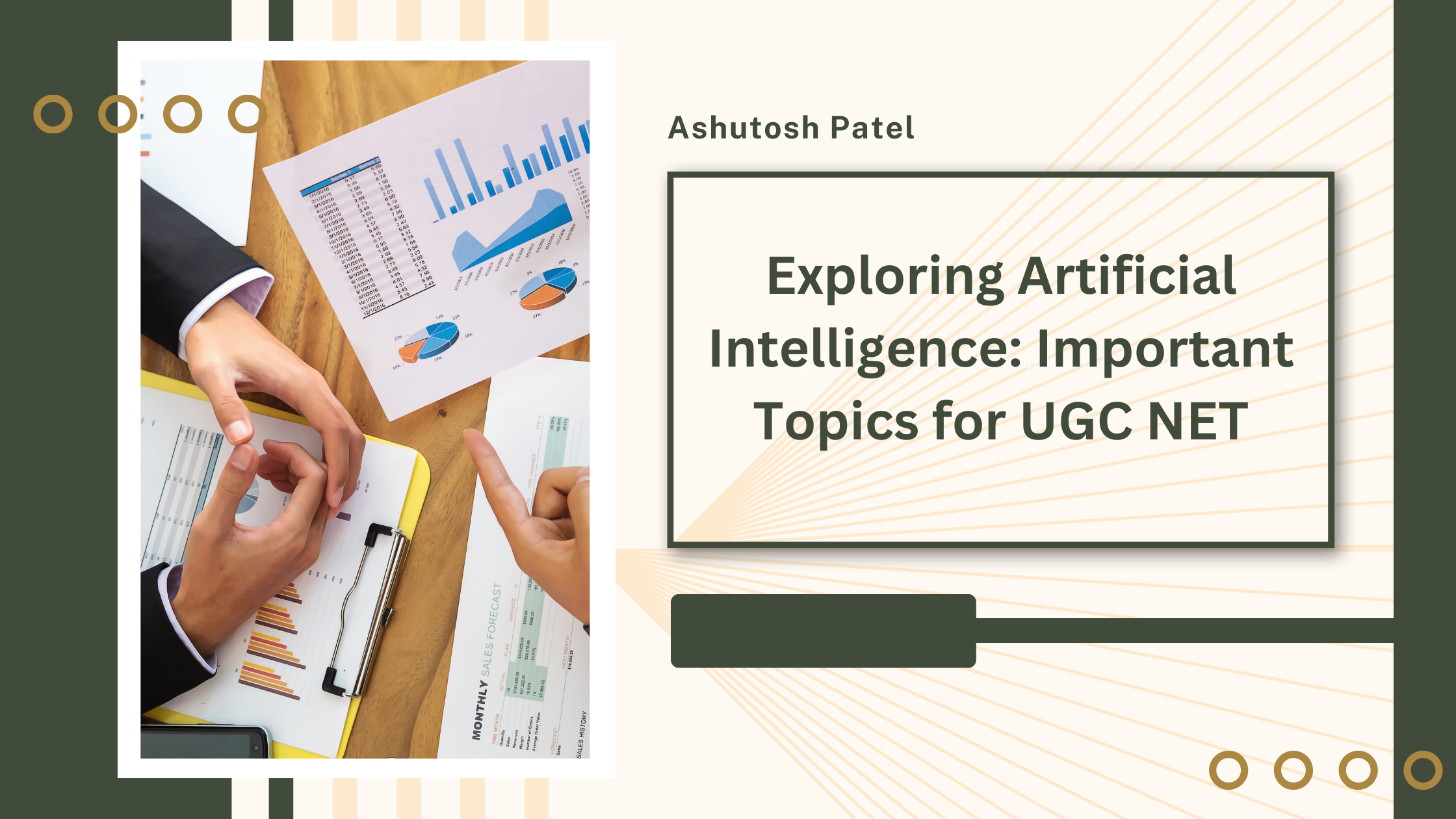Artificial Intelligence (AI) is a significant area of study within computer science and is an important topic for the UGC NET exam. Here are some key topics in AI that you should focus on:

1. Introduction to AI
- Definition and Goals: Understand what AI is, its goals, and how it differs from conventional programming.
- Applications: Study various applications of AI in fields like healthcare, finance, robotics, and natural language processing.
2. Search Algorithms
- Uninformed Search: Breadth-First Search (BFS), Depth-First Search (DFS), Uniform Cost Search.
- Informed Search: A* algorithm, Greedy Best-First Search, Heuristics.
- Adversarial Search: Minimax algorithm, Alpha-Beta Pruning.
3. Knowledge Representation
- Logic: Propositional Logic, First-Order Predicate Logic.
- Semantic Networks: Understanding and creating semantic networks.
- Frames and Scripts: Using frames and scripts for knowledge representation.
- Ontologies: Basics of ontologies and their use in AI.
4. Reasoning and Inference
- Deductive Reasoning: Methods of deduction and their applications.
- Inductive Reasoning: Understanding inductive reasoning and learning from examples.
- Bayesian Networks: Structure, conditional independence, and inference in Bayesian networks.
- Fuzzy Logic: Basics of fuzzy sets, membership functions, and fuzzy inference systems.
5. Machine Learning
- Supervised Learning: Regression, classification, decision trees, support vector machines (SVM).
- Unsupervised Learning: Clustering methods (K-means, hierarchical), dimensionality reduction techniques (PCA).
- Reinforcement Learning: Basics of reinforcement learning, Markov Decision Processes (MDP), Q-learning.
6. Neural Networks and Deep Learning
- Artificial Neural Networks (ANN): Structure, perceptrons, activation functions, training algorithms (backpropagation).
- Deep Learning: Convolutional Neural Networks (CNN), Recurrent Neural Networks (RNN), Long Short-Term Memory (LSTM), autoencoders.
7. Natural Language Processing (NLP)
- Syntax and Semantics: Parsing techniques, grammar, meaning representation.
- Machine Translation: Basics and methods of machine translation.
- Speech Recognition: Techniques for speech recognition and synthesis.
- Text Mining: Techniques for text mining and sentiment analysis.
8. Expert Systems
- Architecture: Components of an expert system, knowledge base, inference engine.
- Examples: Study examples of expert systems and their applications.
9. Planning
- Classical Planning: STRIPS representation, state-space search.
- Advanced Planning: Partial-order planning, hierarchical task network (HTN) planning.
10. Robotics
- Robotic Perception: Sensors, perception algorithms.
- Robotic Motion: Path planning, control architectures.
- Robotic Learning: Machine learning applications in robotics.
11. Ethics and Safety in AI
- Ethical Issues: Bias in AI, fairness, transparency, accountability.
- AI Safety: Ensuring the safety and reliability of AI systems.
12. Recent Trends and Developments
- AI in Industry: Current trends and applications of AI in various industries.
- Research: Keep up-to-date with recent research papers and breakthroughs in AI.
Study Resources:
- Books: “Artificial Intelligence: A Modern Approach” by Stuart Russell and Peter Norvig, “Pattern Recognition and Machine Learning” by Christopher M. Bishop.
- Online Courses: Platforms like Coursera, edX, and Udacity offer AI courses from universities like Stanford, MIT, and others.
- Research Papers: Reading recent AI research papers from conferences like NeurIPS, ICML, and CVPR.
By focusing on these topics, you can build a strong foundation in AI, which is essential for the UGC NET Computer Science exam.